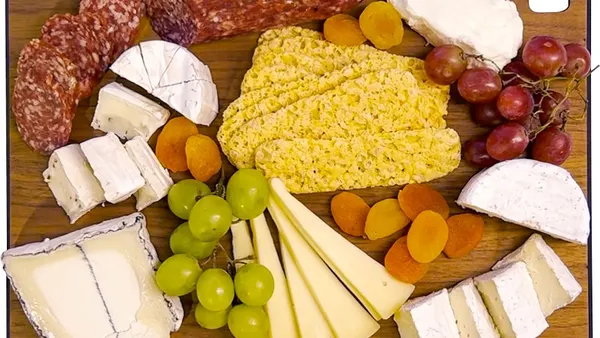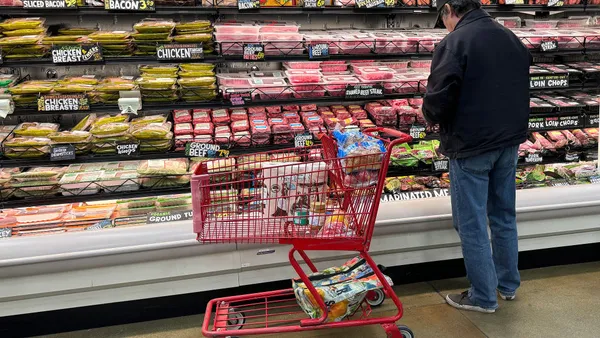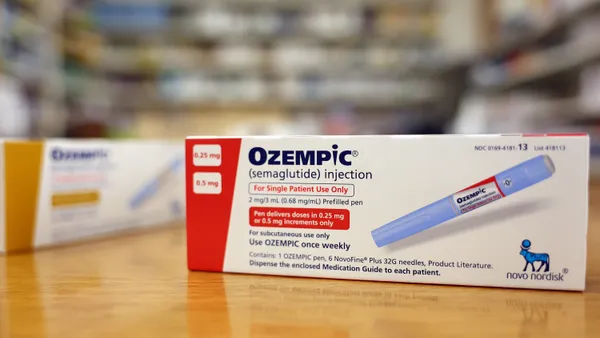Dive Brief:
- Two QFC stores in the Seattle area began selling their first batch of store-grown produce last week. The lettuce, kale, mint, cilantro, dill and other greens are all raised and harvested by Germany-based Infarm.
- At the Kirkland location, each bunch of greens retailed for $2.99 and was merchandised around two Infarm cases, each of which had eight large grow trays. The greens were first planted inside a distribution center in Seattle, then transferred to the store after a week, where they spent most of November before being harvested.
- Thirteen more QFC stores will add Infarm grow cases after the holidays as the retailer and parent company Kroger assess the technology.
Dive Insight:
The Infarm grow cases add a bit of theater to QFC’s produce department and drew a few curious shoppers who looked upon the terrarium-like setup last Wednesday morning. The cases are covered with messaging that touts the local appeal and tech-first approach to cultivation, while a nearby sign informs shoppers the herbs and lettuces are chemical and pesticide free, use 95% less water than conventional agriculture and are “full of nutrients and flavor.”
Underscoring the precision engineering that goes into growing every lettuce leaf and shoot of basil, an Infarm worker sat nearby monitoring conditions inside each case on her laptop.
Kroger, of course, wants the colorful display to translate into a sales bump to help its slumping grocery business. The greens are priced competitively with other specialty items. At $2.99, a bunch of Infarm cilantro and dill matches the price of the same packaged herbs under the Simple Truth label just a few steps away. But it's more than a dollar higher than loose bunches of cilantro and parsley at $1.69.
Like many markets across the country, the Seattle area boasts a wide range of local growers selling fresh, organic produce. So shoppers may not be clamoring for better local selection, and could have a hard time equating the halogen lights and gleaming grow trays with an ideal that’s traditionally defined by family farms and dirt-caked hands. Hydroponic farming, which uses a significant amount of energy to produce its tasty greens, has also struggled with economic viability in the past.
But Infarm insists it produces not just a better “local” but produce that tastes better than anything else that’s for sale. The company, which gained $100 million in funding over the summer, has partnered with more than two dozen retailers throughout Europe, including Amazon Fresh. In its home city of Berlin, it operates a hive-like network of growing operations scattered throughout the city, all of which are monitored and controlled remotely by its team of experts. Its grow cases can be built out horizontally as well as vertically. Infarm is built to offer store-grown produce at scale.
Vertical farming operations like Gotham Greens and BrightFarms have also proven to be economically viable, with the latter recently announcing it will build an indoor farming facility — its sixth to date — capable of growing two million pounds of leafy greens each year.
Ultimately, this amounts to yet another test for Kroger, which is trying everything from driverless delivery to selling groceries inside drug stores. The company has shown its willingness to trial many different creative solutions. Most probably won’t make the cut. Will store-grown produce take root?










